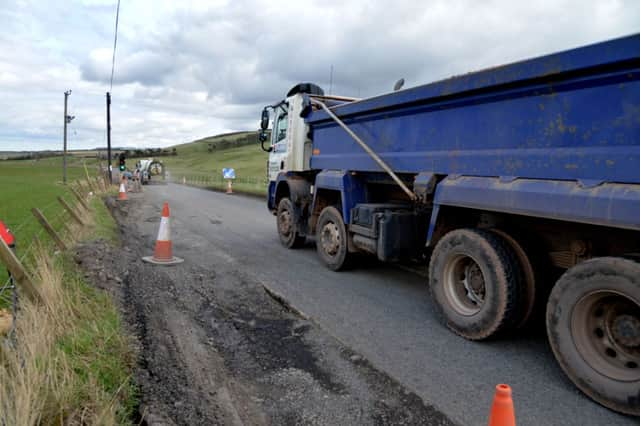Lorry trade’s inroads in a time of a crisis


One should never waste a good crisis, as the saying goes. In the road haulage sector, the crisis we face is a shortage of drivers but we have the opportunity to turn this into a positive, in terms of how firms recruit, the way the industry is perceived and by looking at some of the less positive working conditions. The Road Haulage Association aims to lead on this in 2015.
The RHA is pressing the government to make available simple, targeted, time-limited funding for firms to get new blood into the industry – something our members are very clear is both appropriate and necessary if this essential service industry is going to continue delivering to a high standard for the economy.
Advertisement
Hide AdAdvertisement
Hide AdWe are urging a re-appraisal of the role of lorry drivers – not only essential but also a secure and responsible job in an increasingly IT-driven industry. The job pays well, especially for younger people, is not only licensed but qualified, with continuous professional development.
Lorry driving offers opportunities for a fully diversified career – think about everything from delivering pallets to transporting livestock – offering full-time or flexible employment, opportunities for women as well as men and career development.
The biggest change in recent years – apart from the improvements to the trucks themselves – has been the introduction of the Driver CPC qualification. To drive in the road haulage and logistics industry, established drivers need 35 hours of approved training every five years.
This requirement, which originated form the continent and was unwelcome at first in the UK, remains controversial. MPs continue to receive complaints from constituents saying that it is a waste of time and money. The national press reported that DCPC is the cause of the driver shortage.
If your main point is to bash Brussels, blaming the shortage of drivers on DCPC makes good sense. But the impact of the DCPC has been over-stated, distracting attention from the deep structural issues that need to be addressed in the industry.
Many RHA members tell us that DCPC training brings them business benefits by improving drivers’ understanding of the rules and regulations, of how to gain best fuel economy, of how to load and unload vehicles, of health and safety, of customer service, and suchlike.
One of our member councils recently concluded that DCPC is the best opportunity for improving the road haulage industry in years – provided that it is done well.
The DCPC is far from ideal – even though we succeeded in winning improvements when it was being considered, seven years ago. The RHA is seeking further changes to the Directive, which will take years.
Advertisement
Hide AdAdvertisement
Hide AdWe seek changes to UK implementation, which can be done much more quickly – we will be raising that again with the government in the coming weeks. At the same time, we continue to educate the industry as to the flexibility within the rules.
The RHA has worked to improve the way the Directive is applied here. We successfully argued that workshop technicians should not be required to do DCPC. Tens of thousands of technicians were taken out of scope as a result. We successfully argued for trainers to be allowed more flexibility in responding to the needs of the drivers they are instructing on the day, so that the course was more relevant.
We have worked to improve the quality of courses and understanding of what is allowed within DCPC. We are hearing from more members that the training as a result of the DCPC is benefiting their businesses and drivers.
The RHA has highlighted our concern that smaller firms and their drivers are disadvantaged compared with larger fleets in terms of what they can do in practice within DCPC and we are seeking to narrow that gap.
One solution is to offer high quality open courses and some training providers do that. RHA Training makes its contribution with open courses throughout Scotland and we have to make the case for the quality and rigour of these courses.
We are all guilty of hiding our light under a bushel. The road haulage and logistics industry has a far better story to tell than we have been letting on – and the reality of lorry driver training and development should be lauded as part of that story.
• Martin Reid is Director Scotland and Northern Ireland of the Road Haulage Association
www.rha.uk.net
SEE ALSO